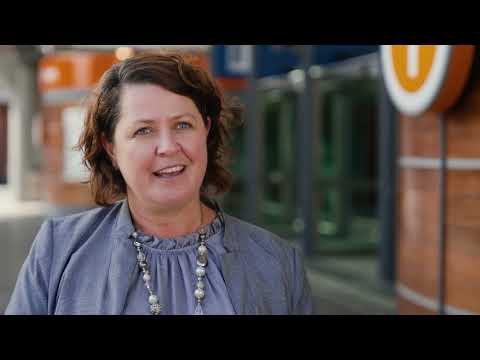Introduction
Digital technology is everywhere, even if we can’t always see it. To help people understand smart technology better, a trial is being run in Sydney Olympic Park. It will test the international Digital Trust for Places and Routines (DTPR) communication standards.
This experiment is the first time DTPR is being used in the Southern Hemisphere. DTPR is part of the World Economic Forum’s Future of the Connected World Global Action Plan and is stewarded by the group called Helpful Places.
This trial received the 2024 IoT Award for Trusted IoT Service.

Digital Trust for Places and Routines (DTPR) – Smart Places
Digital technology is all around us, but often invisible. To help people engage with new smart technologies in Sydney Olympic Park, a trial of the Digital Trust for...
Challenge
Sydney Olympic Park is a major events and sporting precinct, large urban parkland and fast-growing neighbourhood with over 20,000 daily residents, workers and students. The Park attracts over 10 million visitors and stages 5000 events each year, often with multiple events occurring at the same time.
Sydney Olympic Park has a range of smart technologies around the precinct. These help to address:
- safe crowd monitoring during large events
- water irrigation management
- public Wi-Fi and CCTV.
People may wish to quickly understand how these digital technologies work and the purpose they serve. DTPR is helping to communicate this.
Solution
Digital Trust for Places and Routines (DTPR) is an open-source communication standard to increase transparency and accountability for digital technology in public places. It’s a way of making data collection more visible.
DTPR includes a visual system of signs and icons posted around technologies in public spaces. These smart devices include those such as traffic or air quality sensors. The signs let people know what data the technology is collecting, who’s collecting it and what the data is being used for.
These signs are now placed in parks near the Olympic Park Station, including:
- nearby sports facilities
- in the business and residential areas of the park.
The signs have QR codes that people can scan to learn more and share feedback. By scanning a QR code on a sign, you can learn more about the technology, ask questions and share feedback.
The pilots have been subject to an ethical review. This ensures that:
- the use of the new technologies is appropriate
- personal information is protected
- the technology delivers real benefits to the community without compromising privacy or data security in any way.
Expected outcomes
Smart Places outcome areas:
- collaboration and connection
- safety and security.
The project will also:
- improve levels of transparency, accountability and control for people in public places
- deliver a transparent communication standard that can be used as an example for the rest of Australia
- deliver enhanced safety for people in public places without compromising privacy or data security.
Multimedia assets
Resources
Want to implement a similar project? Visit our Smart Places Playbook for help.
Smart Places Playbook: Involving your community
How community engagement can improve your chances of success
Smart Places Playbook: Foundations
Having the right policies and skills in place to support your smart places journey.
- Digital Trust for Places and Routines: Deployment Guide (PDF 635.96KB)
- SOPA DTPR: CCTV cameras monitoring public areas
- About: Sydney Olympic Park
- Sydney Olympic Park: Enabling Digital Transparency
- Digital Trust for Places and Routines
- Fostering Digital Trust for Smarter Places - Sydney Olympic Park Authority
Contact Details
Digital Trust for Places and Routines Project Team
Susan Skuodas
Director, Place Management, Sydney Olympic Park Authority
Explore other smart projects in NSW
Image

Creating Safer Crowded Places
Testing innovative crowd analysis to improve public safety in crowded places.
Image

Smart Irrigation Management for Parks and Cool Towns (SIMPaCT)
Creating cooler parks and gardens for our communities to enjoy, using smart water irrigation systems at Bicentennial Park.
Image

Smart Places - Data as an Asset
Quantifying the value of smart places data as an asset, using effective platforms and tools for data management.
See all our case studies
Search our entire database of Smart Places case studies.

